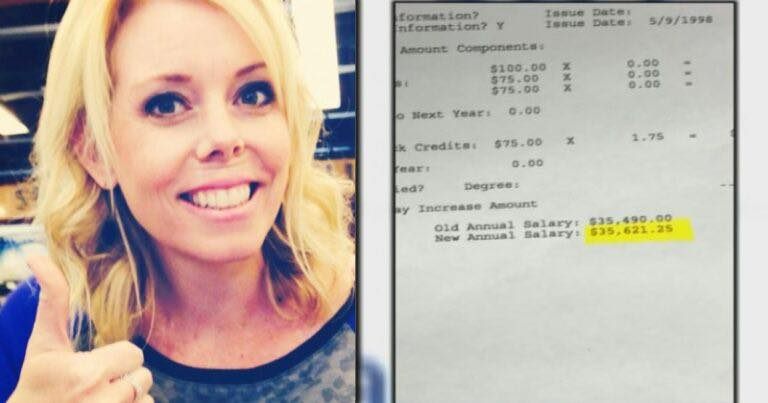Across the country, teachers have staged strikes and protests, demanding higher wages. One teacher in Arizona took the debate to a new level by posting her salary online, and the response has been explosive.

Elisabeth Coate Milich, a second-grade teacher at Whispering Wind Academy in Phoenix, did something most people shy away from—she posted her pay stub on social media. In a country where discussions about finances and earnings are often kept private, Milich decided to make her point about how little teachers are paid.
Milich’s goal was to shed light on the fact that, despite the years of education and training required to become a teacher, she and her colleagues still don’t earn a living wage. In her post, which she later removed due to the overwhelming negative feedback, Milich revealed that she only received a $131 raise over the course of a year. Her salary increased from $35,490 to just $35,621.
“I actually laughed when I saw the old salary versus the new one,” Milich wrote in her post. “I need a college degree to make this? I knew I didn’t make a lot of money, but seeing it on paper was shocking. I mean, I love teaching, absolutely love it, but when you see the salary, it’s impossible to live on.”
Milich, who has been in education for years, hesitated before sharing her paycheck, according to CBS News. But in the end, she wanted to show the reality of a teaching salary in her state. And unfortunately, Milich’s experience reflects a broader issue in Arizona, which ranks among the lowest states for teacher pay.
Though Milich’s salary of $35,621 is far below the average, even Arizona’s average teacher salary is low. According to the National Education Association (NEA), the average teacher salary in Arizona is $47,218, compared to the national average of $58,353. While that number is better than Milich’s, it’s still significantly lower than what most teachers earn nationwide.
Adding to the frustration, Milich pointed out that teachers often have to cover the cost of classroom supplies out of their own pockets, without reimbursement. Teachers like her buy items like markers and tape to ensure their students have what they need to succeed. On top of that, Milich is still paying off student loans, two decades after graduating from college.
Milich also acknowledged that she’s fortunate to have a second household income from her husband. Without that, she says, she would be in financial trouble, a reality many of her colleagues face. “My teacher friends work three or four jobs to make ends meet,” Milich explained. “I know teachers who teach kindergarten all day and then waitress at Applebee’s at night.”
For single teachers, the situation is even more dire. “If you’re single, you just can’t live on what we make,” she said.
Her claims are backed by data. A 2017 study from Arizona State University’s Morrison Institute for Public Policy found that teacher recruitment and retention in Arizona are at “crisis” levels. The study revealed that 42% of Arizona teachers hired in 2013 left the profession within three years, and Arizona’s elementary school teachers are the lowest paid in the nation.





